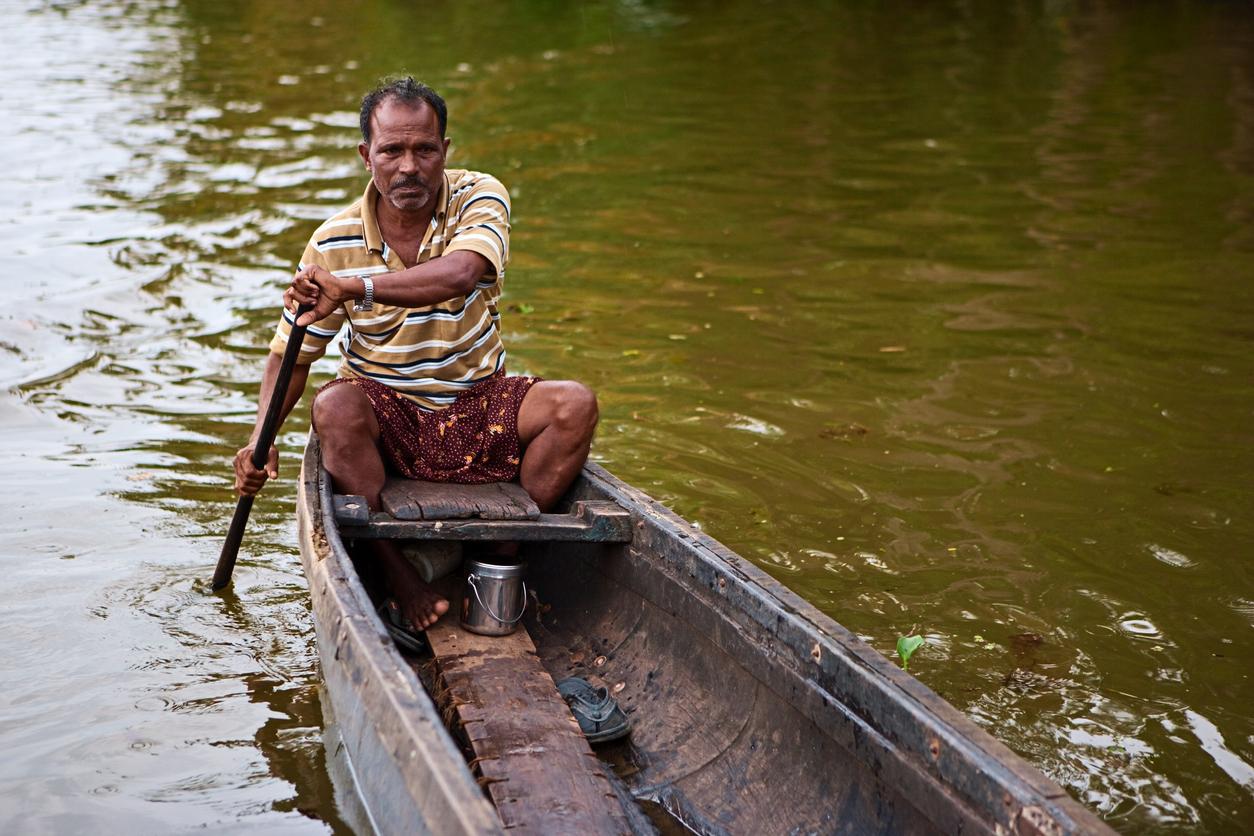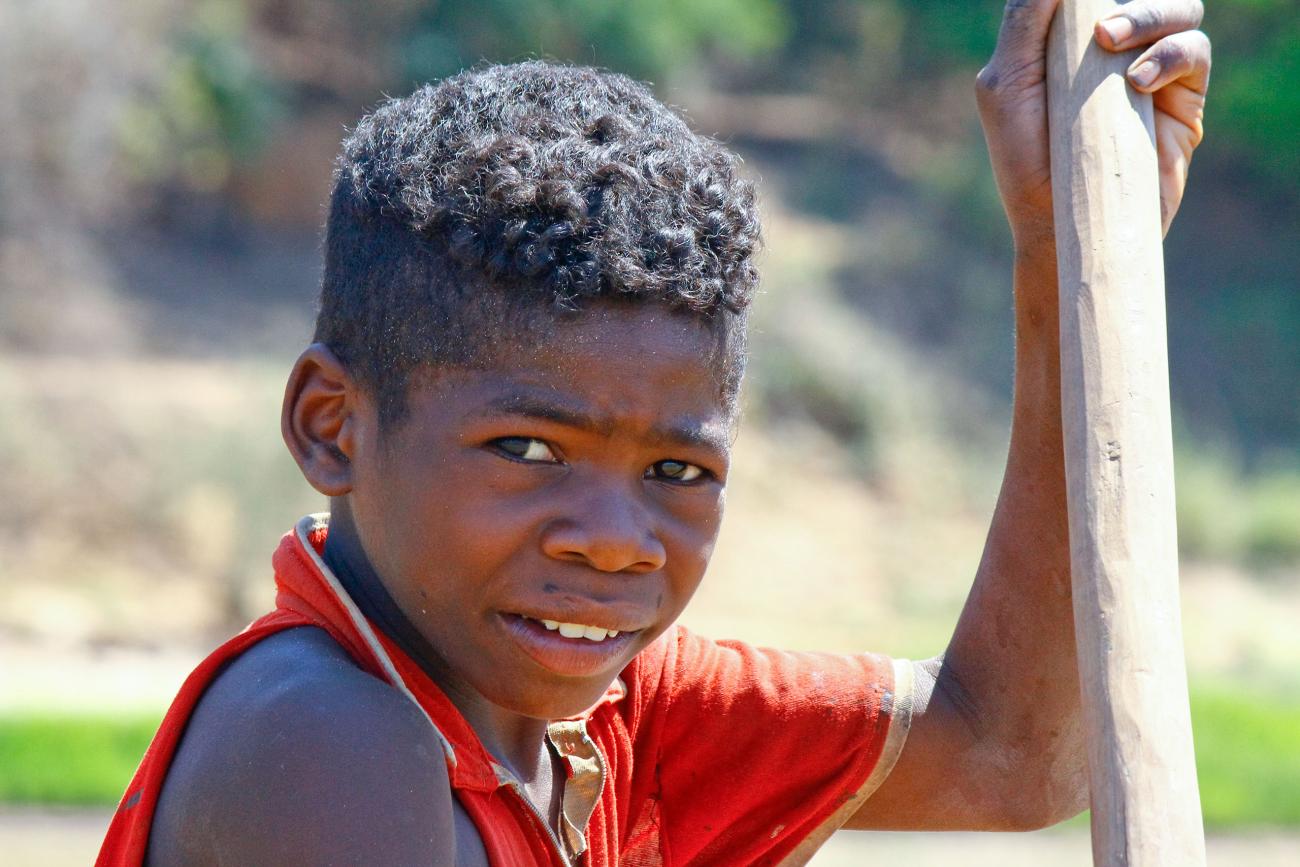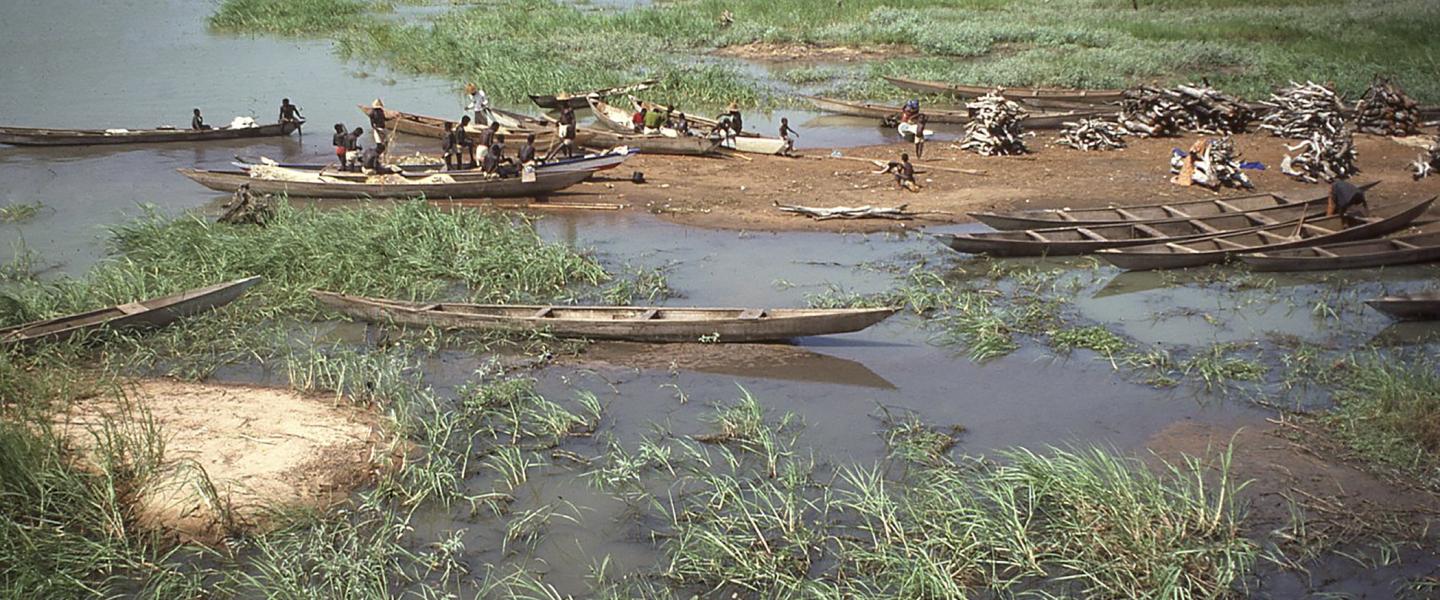23 August is the International Day for the Remembrance of the Slave Trade and its Abolition. Yet, more people are in slavery today than at any other time in history.
It is hard to imagine that in a world where owning people as slaves is criminalised, an estimated 50 million people, including children, live in these conditions.
Slavery at sea is often out of sight and, therefore, out of mind. Vulnerable migrants searching for a better future are often trafficked, exploited, abused, and even murdered aboard. The seafood industry is infested with human rights abuses. Children are forced to work and are often manipulated and abused. And that's just the tip of the murky wave plaguing the maritime industry.
Dr Aidan McQuade OBE, former Director of Anti-Slavery International, Human Rights at Sea Trustee and winner of BBC's Mastermind, sheds light on why slavery still exists and what people can do to help. In an interview, he discusses the prevalence of slavery today and shares his insights on how to combat it.
The number of people in modern slavery has risen significantly in recent years. In 2021, 10 million more people were estimated to be in modern slavery compared to 2016. Do you think we will see a true end to slavery in our lifetime?
Ending slavery is not an event but a political process. It is a process that is not only about protecting the rights of those at risk but also economically empowering them to remove them from situations of risk. When there is a failure to empower those who are vulnerable to slavery, then it persists.
So, slavery will end when sufficient resources are put in place to sustain the empowerment of those who are at risk. For example, through grants for girls to go to school. Or employment of sufficient labour inspectors to root out abuses in dangerous industrial sectors. Or through guaranteeing freedom of association so workplaces can be unionised and mature systems of industrial relations established.
Reports or books on slavery, forced labour or trafficking will usually contain lists of recommendations on what to do if these abuses are to be stopped. But whether the recommendations are good, bad or indifferent, they often miss the more fundamental point that there is limited political will to combat slavery. It is a benefit to many people who hold power, and those who are inclined to combat slavery often lack the resources to do so.
We need to change that reality if we want to end slavery.

It's no secret that slavery is widespread throughout the maritime industry. Why do you think the industry has comprehensively failed to play its part in finding a real solution?
Slavery is a benefit to a lot of people. In the maritime industry, it holds down the cost of labour and so expands profits.
Forced labour has become endemic to large portions of the maritime sector. When abuses like this have become embedded in a culture, then it is next to impossible for that culture to deal with the issue on its own. It needs the engagement of external actors. But, governments and the international community have neither tackled slavery on dry land nor grappled with the issue of the lawless oceans.
The UN has recently confirmed that the number of successful prosecutions of traffickers has decreased worldwide; detection rates fell by 11% in 2020, and convictions plummeted by 27%. Why do you think this is the case?
A decrease in prosecutions is reflective of a decrease in trafficking as a political priority, which is, in turn, reflective of the increase in the number of people in forced labour.
But while the decrease in prosecutions is regrettable, it should not distract from the fact that you cannot prosecute your way to the end of slavery. Ending slavery requires empowering those who are vulnerable to slavery, and that is a broader political-economic process that needs to be prioritised alongside the necessary criminal justice processes.

Children working at sea are often sent to work by their families living in extreme poverty. Do you consider this a form of slavery, and how is this particular human rights issue best addressed?
The transfer of a child by a parent or guardian to a third party for the purpose of exploitation is the legal definition of child slavery. It is difficult to understand why parents would do such a thing if you cannot empathise with the abject poverty and desperation that can lead to this. I have found similar situations in Myanmar where in some border regions, parents sell their daughters for forced marriage in China, such is their poverty.
Economic empowerment of families and individuals vulnerable to slavery is one key response to this: for example, by giving grants to the family for the child's attendance at school. But there is also a strong need for increased labour inspection at sea and establishing processes for removing children from situations of slavery and enabling them to recover their childhood and education to empower them against being enslaved again.
Why do you think there are still major misconceptions about slavery today?
For many in the global North, particularly those who are politically and economically powerful, slavery is something that seems distant in history and geography to them. So it is not something that they have to think about. And because they do not think about it, they remain in blissful ignorance about how they benefit from it and how their acts and omissions lead to its perpetuation.
Thinking for a moment about the people reading this interview, is there anything they can do as "ordinary" people? And do you have any tips or advice for how they can help or get involved?
Because ending slavery is a political process, those who wish to end slavery must act as engaged citizens. This means becoming informed and asking questions – particularly of elected officials and business executives.
Of elected officials, they can ask: in what ways is our aid budget being used to combat slavery? What anti-slavery provisions are included in our country's trade deals?
Of business executives, they can ask: what are you doing to ensure decent work in your operations and at all stages of your supply chain?
In my book, Ethical Leadership, I write that "Protest is leadership," and it is. It is protest that has led to every positive transformation in society, such as votes for women and equal pay. Ultimately change comes when those who hold power realise the outrage of ordinary citizens at what they have been doing with that power. That can seem like a towering challenge. But it is how change always happens: when ordinary people let the powerful know that their greed and cynicism have revolted their decency.
It is why, in the end, we can overcome.
Contact: If you have any questions, please write to us at enquiries@humanrightsatsea.org
About Sharing. We welcome the use and dissemination of our work with proper accreditation. Please ensure that our Terms of Use are conformed with at all times.
Photo credit: Dr Aidan McQuade OBE
